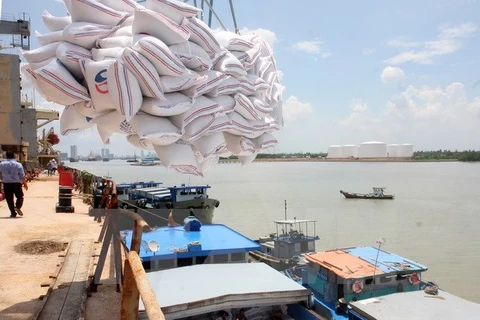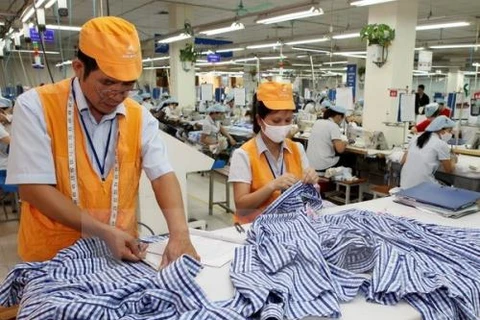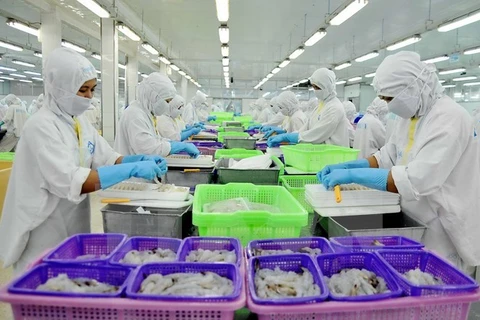HCM City (VNA) – Vietnam's rice exports this year excluding border trade are expected to remain at last year's 6.5 million tonnes, according to the Vietnam Food Association.
Speaking at a review meeting in HCM City on January 14, Huynh Minh Hue, the association's general secretary, said last year exports fetched 2.68 billion USD, a decrease of 3.94 percent in value despite a marginal increase in volumes as prices dropped. Asian countries were the main buyers, accounting for 74.5 percent of the exports, followed by Africa (13.77 percent), and the US (6.72 percent), he said.
Last year exports of 5 percent broken white rice increased sharply due to high demand from Cuba, the Philippines, Malaysia, Indonesia, and China, he said, adding that exports of fragrant rice also went up significantly thanks to competitive prices and meeting quality demands.
"In general, countries that previously mainly imported low- and medium-grade rice have shifted to high-quality rice."
He quoted the US Department of Agriculture as saying that the global rice output in 2015/16 declined by 1.9 percent to 469.3 million tonnes, a second straight year of decline.
El Nino was a major factor, causing smaller crops in many rice production countries.
Global consumption will meanwhile rise by 0.5 percent to 484.6 million tonnes, making it the third consecutive year when consumption will exceed production, leading to a depletion of stockpiles.
Huynh The Nang, the association chairman, said stockpiles at Vietnamese rice enterprises at the end of last year were around 400,000 tonnes, much lower than the average of 700,000 tonnes in the same period in previous years.
"In general, rice consumption this year will be better."
Hue said this year the association would focus on boosting exports to near and traditional markets in Asia, including China and Southeast Asia, and increasing exports of fragrant rice to Hong Kong and Singapore.
It would strive to expand its fragrant rice market share in Africa and gradually recover the market for white rice, he said.
It would work to enable Vietnamese rice to penetrate new markets, especially countries that have free trade agreements with Vietnam, he said.
Nang said the association would this year focus on building a rice value chain and brands.
Nguyen Van Tien, Director of the An Giang Import-Export Joint Stock Company, said the Asian market has demand for rice but Vietnam would face intense competition from Thailand and Pakistan.
Thai inventory levels would affect rice prices in the world market, he said. Export of fragrant and high grade rice are expected to increase strongly this year due to high demand from China and Africa, he said.
He called on the Government to step up quality checks of exports to safeguard the country's prestige and to sell to demanding markets.
The association should also provide enterprises with up-to-date market forecasts and trends, he said.
Several delegates at the meeting suggested the Government should crack down on the use of chemicals in rice production.-VNA

























